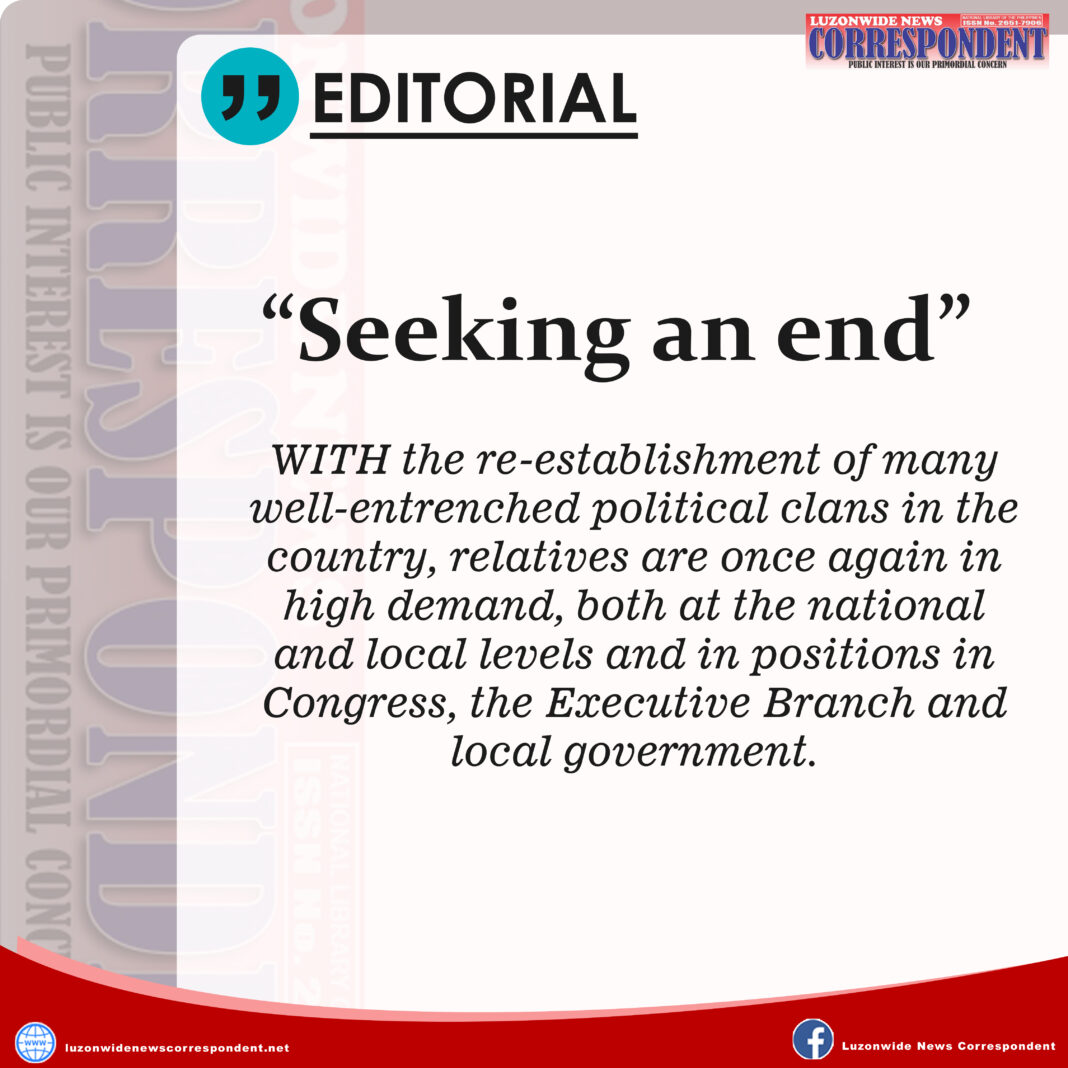Published in its print edition on June 28 – July 4, 2025
WITH the re-establishment of many well-entrenched political clans in the country, relatives are once again in high demand, both at the national and local levels and in positions in Congress, the Executive Branch and local government.
Dynasties are indeed common, according to a study of congressional data, as almost 75-80 percent of politicians are part of them.
Relatives—husbands, fathers, brothers and sisters, and even grandchildren and great-grandchildren—control politics in the country.
Because of this, it is not far from notions that politicians control the course of political and business conduct in the country.
The Anti-Political Dynasty Act has been introduced again in Congress. This is a new introduction because it has been stalled or failed to pass several times in previous Congresses.
One of those promoting this is the Makabayan bloc, which is part of the 20th Congress after they introduced House Bill 209, a bill to ban political dynasties.
It is only right that it be re-filed by Rep. Antonio Tinio (ACT Teachers Party-list) and Rep. Renee Co (Kabataan Party-list).
This is a step to have a chance that the anti-dynasty bill will still pass into law.
With dynasties out of the picture, there is a greater hope that more Filipinos will prosper because not only a few clans will control businesses and politics.#







